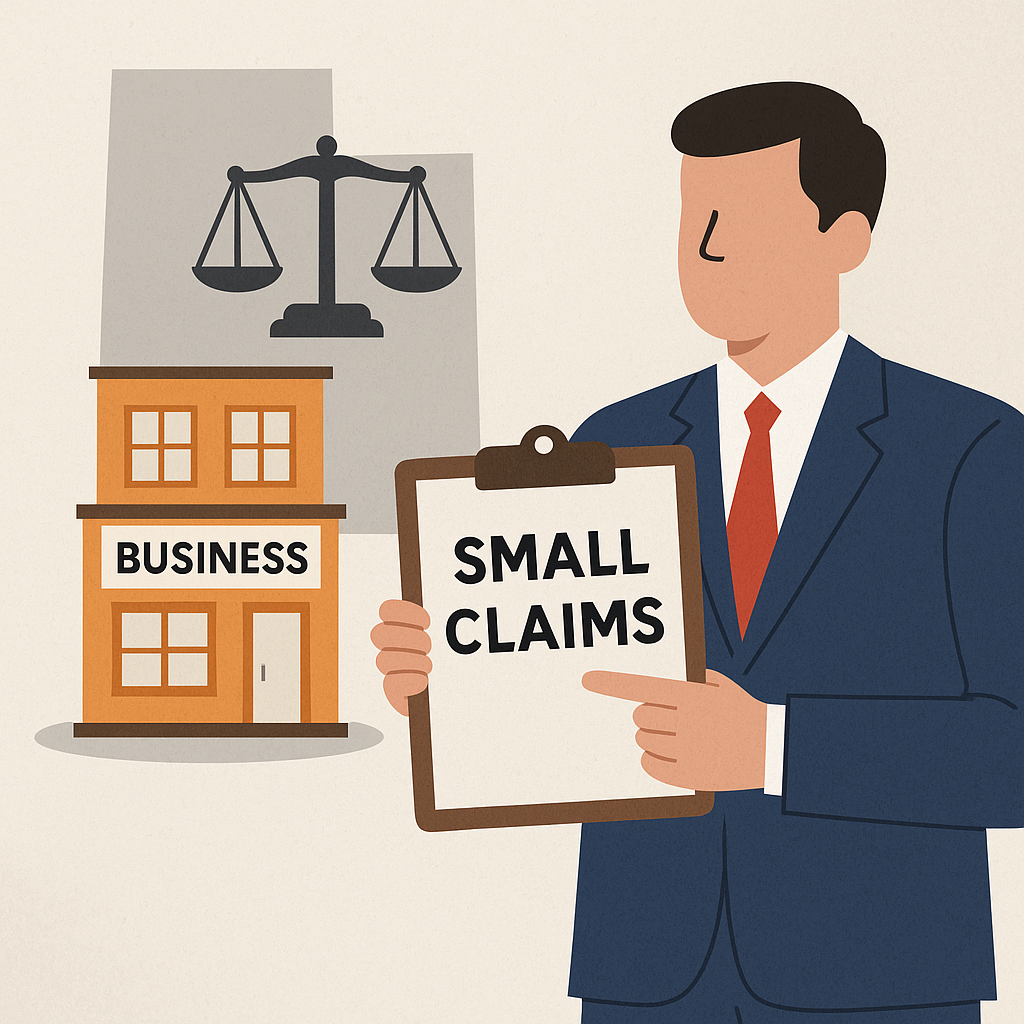How Do I Sue a Business In Utah Small Claims Court?
Plain-English steps, forms, service rules, hearing prep, and collection options
Short answer: suing a business in Utah small claims court is often the fastest, cheapest way to resolve a dispute when you are owed money or property. No lawyer required.
This guide walks you through jurisdiction, filing, service, evidence prep, the hearing, and collecting a judgment. You will also find a resource hub and Utah form links so you can take confident, informed action.
Overview
Utah small claims is part of the justice court system and handles straightforward civil cases up to a set dollar limit. The process is designed for regular people. Before suing a business, make sure:
- The case fits the court’s jurisdiction and claim limit.
- You are suing the correct legal entity name.
- You gave the business a fair chance to resolve the issue first.
Then file, serve the right person, organize your proof, and show up ready to explain your claim.
Step-by-Step
Check jurisdiction and limits
Utah small claims courts handle disputes where the amount in controversy is $15,000 or less (as of 2025). Larger cases belong in district court. You can file in a county or city justice court where the business is located or does business, or where the event or transaction happened.
Get the name right: look up LLCs and corporations in the Utah Division of Corporations. If it is a sole proprietor, you can sue the owner’s name doing business as (DBA). Naming the wrong entity can delay or sink your case.
File your claim
Use the Small Claims Affidavit and Summons. List your info, the business’s correct name and address, your claim amount, and a short statement of what happened.
Filing fees: typically about $60 to $185 depending on claim size. Fees are paid to the clerk and can often be added to your judgment if you win. After filing, the court issues the summons to be served on the business.
Serve the business
You must have someone else serve the papers. Options include sheriff or constable, licensed private process server, or certified mail in limited cases. For LLCs and corporations, serve the registered agent listed with the Division of Corporations. File your Proof of Service before the hearing or your case could be postponed or dismissed.
Prepare your evidence
Bring contracts, invoices, receipts, emails and texts, photos, repair estimates, expert notes, and witnesses if available. Show why the business owes you and how you calculated the amount. Label everything and keep it in chronological order.
Pro tip: bring three sets – for you, the judge, and the other side.
The hearing
Hearings are informal but structured. Both parties are sworn in. The judge asks questions and reviews evidence. If the business does not show, you can get a default judgment. If both appear, the judge usually decides that day or within a few weeks. Stay respectful, concise, and fact focused.
Collect your judgment
Winning does not automatically mean payment. If needed, request a writ of garnishment for bank accounts or wages, file a judgment lien against business property, and use interrogatories to find assets.
Small claims judgments are generally valid for 8 years and interest accrues until paid. If you lose, you have 30 days to appeal to district court.
Form Finder and Official Resources
Video & Social Learning Hub
Key Takeaways
File where the business is located or where the transaction happened and keep your claim at or under $15,000.
Serve the right party – usually the registered agent for an LLC or corporation – and file Proof of Service on time.
Organized, labeled evidence wins. Bring three sets and be concise with the judge.
Need Utah-Specific Help?
Utah Law Explained offers plain-English guides and checklists so you can move forward with confidence. If your dispute is complex, or you are unsure how to name or serve a business, consider talking with a Utah attorney.
Explore More GuidesDisclaimer: this page provides legal information, not legal advice. When in doubt, get professional guidance before you file.
